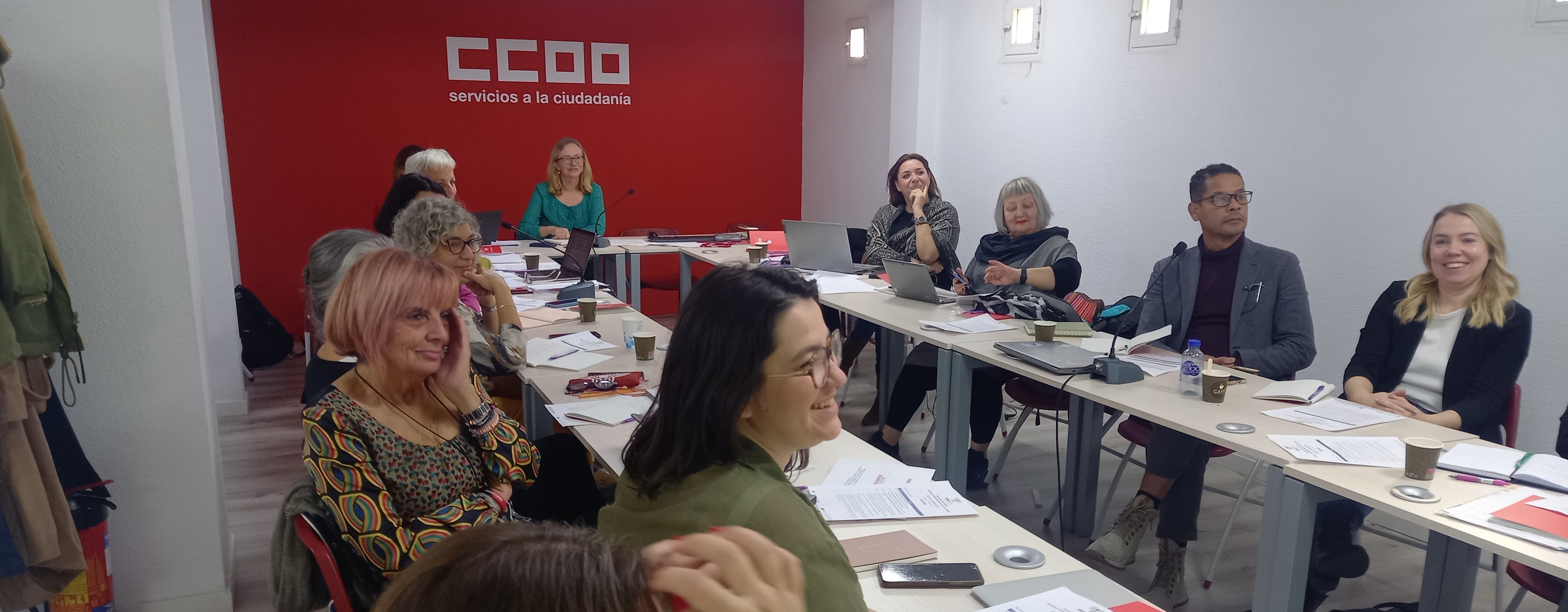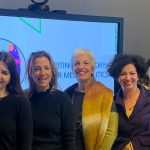Madrid, 8-9 November 2023
Is there a difference in how women and men politicians are portrayed in news content? What does this difference depend on? And what strategies and tools can be adopted for a real change?
These are some of the issues addressed by 6 Public Service Broadcasters and 6 Journalists Unions during the first workshop of a peer-to-peer program organised in Madrid on 8-9 November and hosted by the Spanish union CC.OO.
The event, coordinated by COPEAM, is part of the EU- funded project “Rewriting the story”, which promotes gender equality in reporting politics and public life. One of the key goals of this action is that of contributing to change newsroom mindsets, to improve the professional understanding and practices regarding gender portrayal and, by doing so, to empower citizens to make informed decisions.
Discussions addressed gender balance on TV panels, the development of female experts database to strengthen women’s visibility in the news, the need for women in media to work in networks, journalists’ training on gender issues, the fight on gender bias in visuals, the creation of gender structures in the media, the ongoing online abuse of women journalists, the role of gender editors in balancing news reports, and artificial intelligence as a tool for change.
Each participant set his/her own goal for change to be completed within the end of the program and beyond. Four mentors - Sofia Branco, Méline Laffabry, Valbona Sulçe, Emma Thomasson - were appointed to guide them along this process and monitor its evolution. Participants will meet again twice in person in 2024, as well as online in between to assess and share their progress.
The overall initiative is structured into 4 key components bridging different relevant stakeholders in a number of activities:
- Data collection and research documenting the state of play with regard to gender portrayal of political life in Europe from both a quantitative and qualitative perspective, conducted by the students if Padua university;
- Development of a training toolkit used in two train-the-trainer sessions for journalists' unions from a dozen EU countries;
- A series of national training workshops organised in 12 countries;
- A peer-to-peer program involving public broadcasters and journalists' unions to mainstream gender equality in editorial decisions and newsroom organisation and working conditions.
A final conference will bring together all the project participants to showcase their results on 5-7 June in Italy.

























